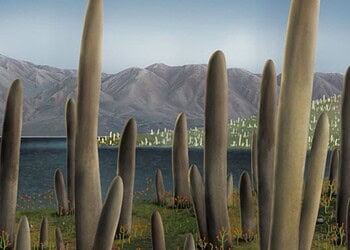After they analyzed dust samples collected from 1,200 US households, researchers at the University of Colorado at Boulder identified over 9,000 different species of microbes, bacteria, and fungi.
The exact makeup depends on where the home is located, the gender of the people living inside, and whether or not pets are present.

What if I told you germs were cramming every inch of your home? Most people are already aware of this, thankfully. Others freak out, partly because they might not understand that it’s perfectly natural and normal.
You weren’t affected by the germs until you heard the news, and you shouldn’t be after you find out. Nevertheless, there have been countless studies that document the germs living inside your home. This study, however, is the most extensive by far revealing the extent of the biological makeup that comprises a typical American home.
The research is also another success story of citizen science coming to the rescue, as all the samples were collected by regular folks who then mailed them to the university. About 1,200 households responded to the call and sent dust collected from obscure locations people never usually bother cleaning, like the ledges above the door.
The participants also filled out a questionnaire asking what their living and household habits were, whether or not they were vegetarian, had pets, and so on.
Some of the key findings:
- The average American household has more than 2,000 different species of fungus and 7,000 species of bacteria.
- Some of the fungus species include common strains like Aspergillus, Penicillium, Alternaria and Fusarium.
- Most of the fungus comes from outside the home so the fungus makeup of a home depends on where this is located.
- Distinct bacteria were found in homes where only women or men lived. That’s because some types of bacteria are more common in women than men, and vice-versa. For instance, in male-dominant homes, scientists found two types of skin-dwelling bacteria belonging to the genus Corynebacterium and Dermabacter, as well as the fecal-associated genus Roseburia, in greater abundance than in female-dominant homes. The researchers attribute the difference in hygiene habits.
- Having a dog or cat for a pet significantly alters the bacteria makeup of a home. In fact, having pets was the most influential factor that determines the biological ecosystem of your home. The researchers could determine whether or not dogs or cats lived in a home with an accuracy of 92% and 83%, respectively.
The researchers say most of these microorganisms and fungi they identified are harmless.
“People do not need to worry about microbes in their home. They are all around us, they are on our skin, they’re all around our home – and most of these are completely harmless.
“It is just a fact of life that we are surrounded by these microbes,” concludes Dr Noah Fierer, associate professor of ecology and evolutionary biology at University of Colorado at Boulder.






